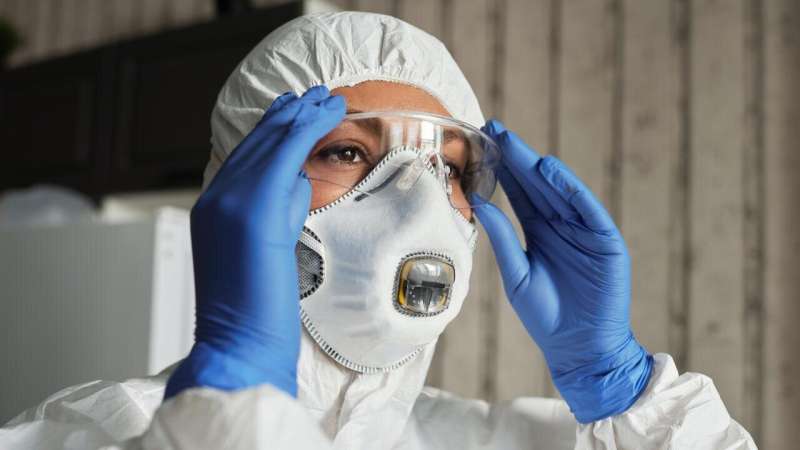Disinfecting PPE for reuse, recycling

A professor at Waterloo Engineering collaborated with researchers in New Zealand on the development of a method to disinfect personal protective equipment (PPE) for reuse or recycling.
Bill Anderson, a professor of chemical engineering, lent his expertise on disinfection using ultraviolet light to a multidisciplinary effort triggered by a shortage of PPE early in the COVID-19 pandemic.
“This collaboration with New Zealand researchers was a timely and beneficial way to bring together a diverse set of expertise, research laboratory resources, and healthcare needs,” said Anderson, who helped with experiment design, methodologies and data interpretation.
Led by researchers at the University of Auckland, the team tested UV light and dry heat for disinfecting clinical PPE. Its initial findings were published this month in the journal Pathogens.
Results showed UV disinfection was not reliable on the irregular surfaces of PPE, but that dry heat was effective. The researchers also found replication-competent virus remained on face masks for up to five weeks at room temperature.
The most recent stage of the research project has been to build and test a prototype mobile disinfection unit in a shipping container at the Port of Taranaki.
“Safety of healthcare workers during the current pandemic is critical to reducing community transmission of COVID-19, and this requires readily available PPE,” said lead researcher Yvonne Anderson, a senior lecturer in pediatrics, in a media release.
“The primary focus of our project was protecting healthcare workers and other frontline staff against the SARS-CoV-2 virus. However, it’s paramount that we also find ways to mitigate the ever-growing amount of medical waste that goes to landfills, or worse, that ends up polluting our lands, rivers, and seas, magnifying the global problem of plastic pollution.”
Researchers are now testing the effects of heat treatment to assess if disinfection compromises the required levels of protection for PPE.
In addition, they plan to determine if unusable PPE can be broken down into water and largely harmless chemicals using hydrothermal processes, a project Bill Anderson will also be involved in.
Source: Read Full Article
